Grimes: "Sound design is my favourite part of the recording process"
For Recording Week 2024, we revisit a classic interview surrounding the release of Grimes' fourth album Art Angels
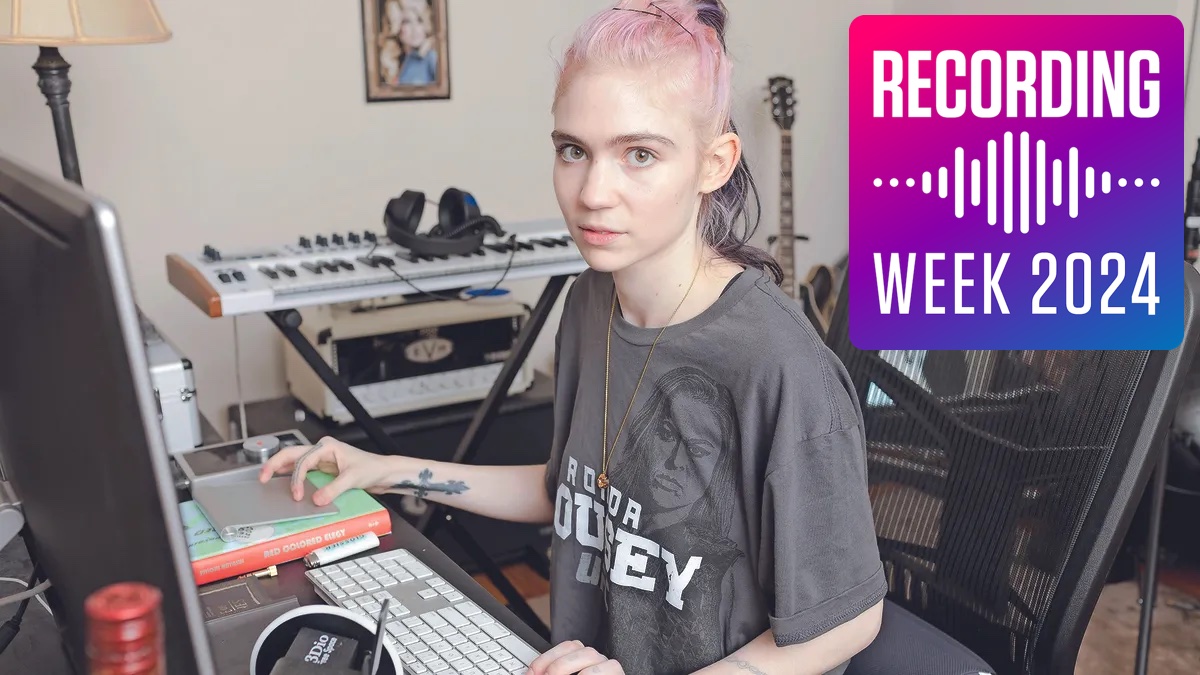
RECORDING WEEK 2024: Back in 2015 we caught up with Canadian artist Claire Boucher - better known as Grimes - in her Montreal studio space to find out more about the making of what would become her future classic, Art Angels – an ambitious art-pop opus that helped propel Grimes to international acclaim.
There's recording revelations aplenty and her own unique take on the art of sound design…
Born and raised in Vancouver, Canada, Claire Boucher is one of a small handful of rising artists breaking down the barriers between dance music, pop and experimental electronica.
Perhaps it was the fact that Grimes thought nobody would ever listen to her kooky, idiosyncratic 2010 debut album Geidi Primes that led to its eccentric appeal. The more ‘complete’ Halfaxa was churned out later that year to a welter of positivity.
In 2012 Grimes delved deeper into the depths of her imagination with the album Visions, recorded entirely using GarageBand and a Juno-G synth. Seemingly happy to peddle herself as a reclusive insomniac, emitting bizarre quotations about “channelling spirits”, her first album for 4AD saw her work labelled as haunting, impressionistic and “impossible to dance to”.
With the release of her album Art Angels, Grimes continues to experiment within a whisker of what is considered to be normative electronic pop. Chatting to the rising star immediately puts to bed media suggestions of a proclivity for being swayed by popular opinion; instead, Grimes proves to be a multi-talented and agreeably headstrong musician with an obsessive passion for sound design.
When did you realise music was the right career path for you?
Get the MusicRadar Newsletter
Want all the hottest music and gear news, reviews, deals, features and more, direct to your inbox? Sign up here.
“Super early on. I’d put out a couple of records and was opening for an artist in Montreal when the promoter paid me $275 after the show. I was like, ‘I’m rich!’, and then I just quit everything else. At the time, that was so much money to me that it just seemed obvious that I was going to be able to have a career in music. So that was definitely a key moment.”
You cited Nine Inch Nails' Pretty Hate Machine as an influential album. What did you take from it at the time?
“I would say I was more influenced by The Downward Spiral. That was a really big deal for me. I actually didn’t realise that Trent Reznor wasn’t just the front person when I was a teenage fan. I was like, oh yeah, the band Nine Inch Nails, but didn’t know he was the main producer. Discovering that about him was really important to me because he had such a strong aesthetic, as well as fronting the group and doing all the production and sound design.”
There seems to be a clear development from your debut album through to Visions, but how do you think you have developed in that time?
“I think I’m definitely learning about songwriting. With Halfaxa and Visions I would create songs almost by accident. When I started, I literally knew nothing about music. I didn’t know what a chorus was or that a verse leads into a chorus and then a second verse. My understanding was more impressionistic. It was like, yeah I’m making music but I don’t really understand how it works. But by the time I got to Visions I understood that songwriting and sound design are two different things; you can spend equal time on both and the level of sound design can make a better song. After this album, I’m actually thinking about going back and making more formless things.”
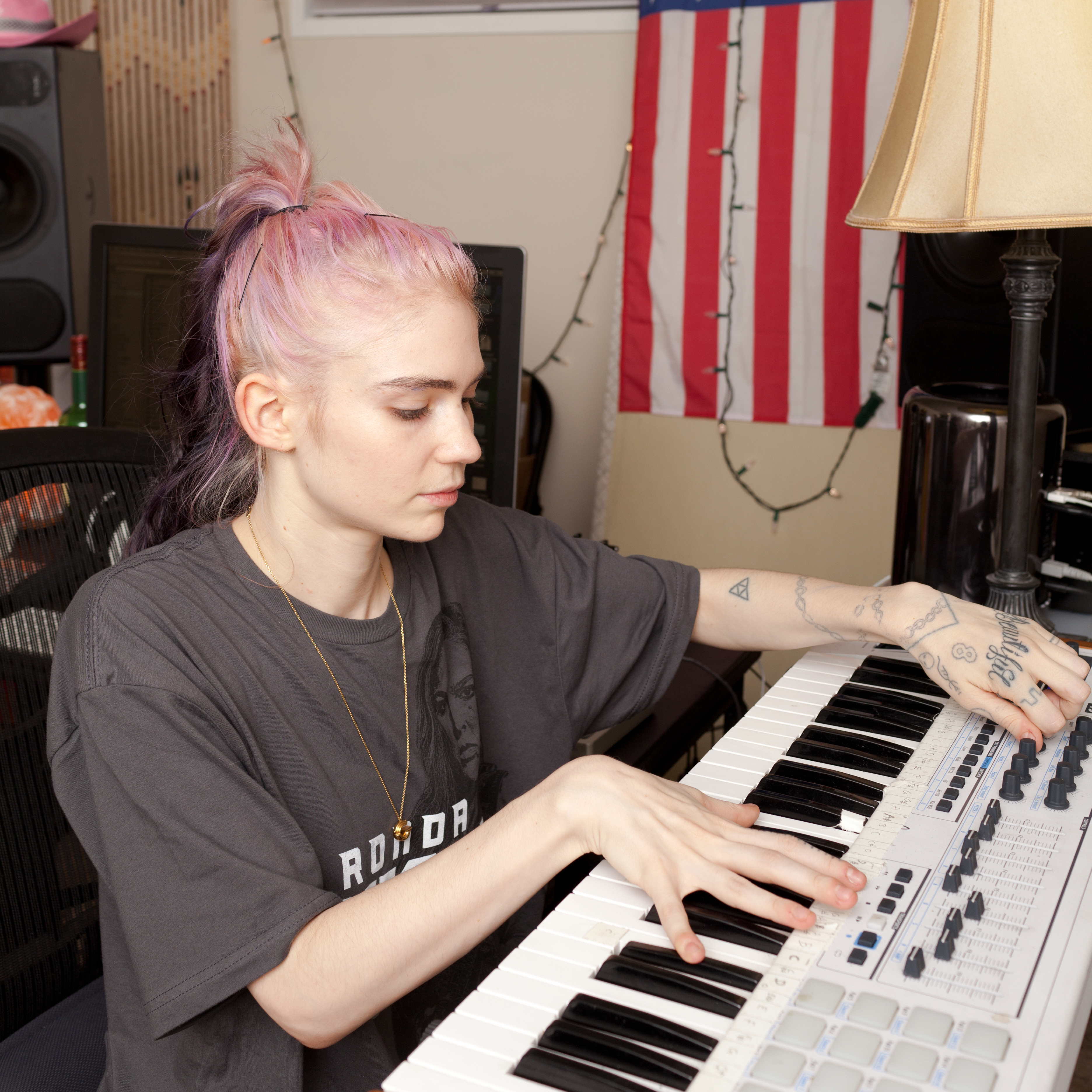
Have you learned a lot in the short five years you’ve been making music?
“I’ve learned a lot about microphones. At first, everything was recorded through the laptop mic, but by the time I got to Halfaxa I was borrowing someone’s interface and putting vocals through that. Then by the time I got to Visions the keyboard was going through the interface and I was slowly learning about recording of a completely
different nature.”
What was your approach to the new album Art Angels?
“With the album I’ve just made, every song is a song, but I’m also really interested in making instrumentals. I appreciate straight sound design and want to spend more time doing that, but I’m at a particular point in my career where I’m doing lots of shows and festivals and you’ve got to have songs for that kind of thing. But the thing I actually enjoy the most is the instrumental part, like making beats and stuff. The vocals are the stressful part, because you have to be so much more precise with vocals. If an instrument is way off beat it can be really cool, but with a vocal it’s
just kind of jarring.”
Your albums sound very conceptual… Is that the case?
“There’s a bit of a different aspect to it this time. Last year I did some songwriting camps where I was writing for other people and that really got me into this mindset that if you write from someone else’s perspective it’s a lot easier. There’s a lot less pressure on you and you can do more things vocally than you would feel comfortable doing on your own because somehow the burden is off you. If someone’s like ‘I hate that’ or ‘I can’t believe you said that’, then, well it’s from the perspective of someone else – it’s not what I think! I think that whole notion really improved my songwriting. Also, on this album I was actually learning how to play instruments. Now I can actually sit down and write a song on guitar.”
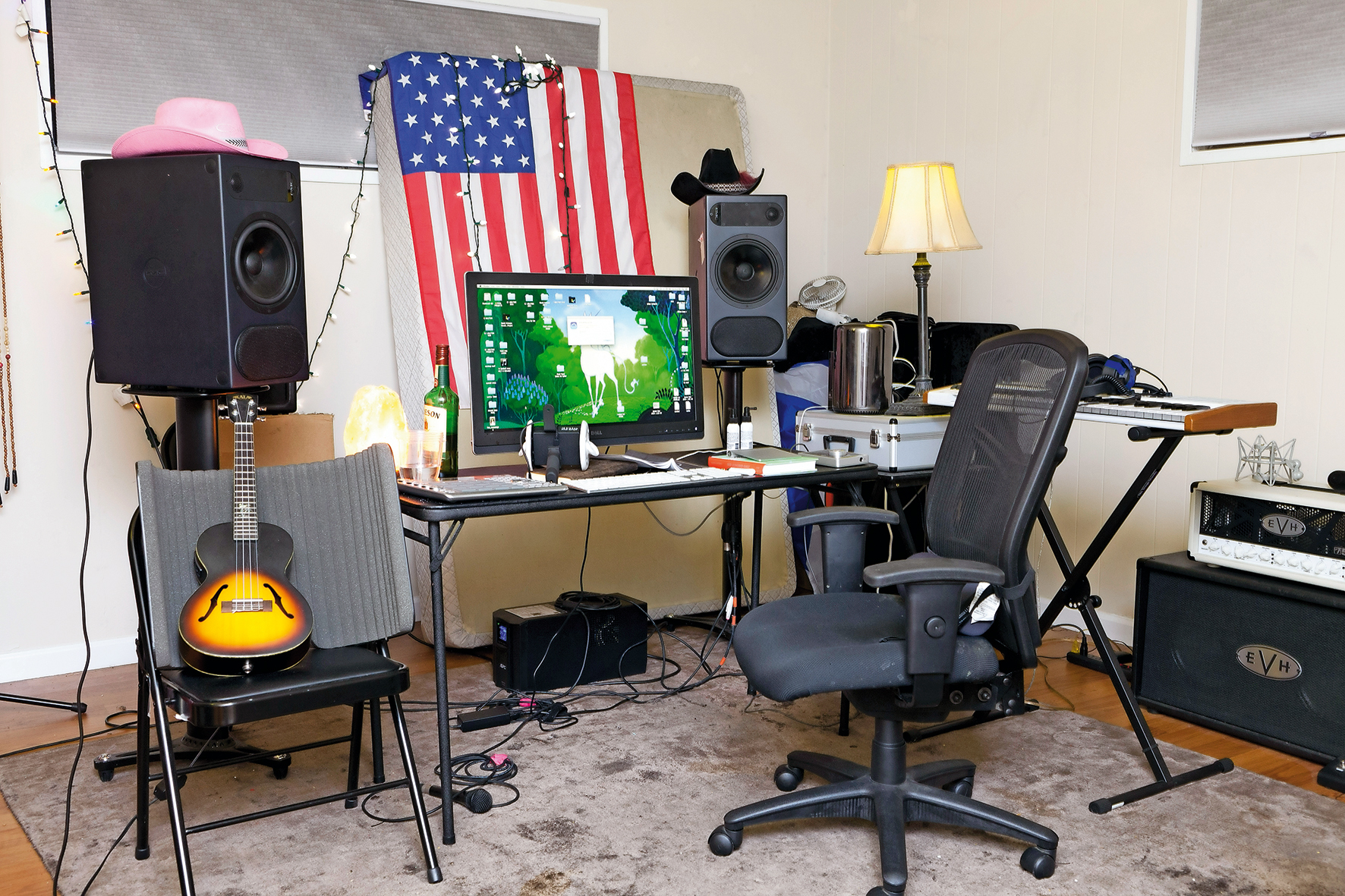
How far do you dig into the sound design element?
“I think the sound design aspect is really important, although there are more songs on Art Angels than anything I’ve done before. If you have a great instrumental hook, it’s so much easier to create a vocal out of it than if you have a shitty instrumental. A song is already written if you have a great instrumental track, so I try to make instrumentals that give me the feeling it will be a great track before I even start on the vocal – but that’s like one in ten instrumentals.”
What’s your approach in terms of developing the ideas you carry around with you?
“The best songs come when I’m really upset, so if I’m having a terrible time I’ll come home really angry and a lot of my stuff will come from that. I usually sit down and start making beats or an instrumental and develop something that I think sounds cool melodically.
“I also have a book that I keep by my bed and constantly write down shit throughout the day. If I’m out of the house, I’ll do it on my phone and transcribe it into the book later. So I just try to find stuff out of my book that I think would be cool and can fit into a theme that I’m going with. Sometimes I try to figure out something that’s melodically satisfying and fill in the words and sometimes the song is kind of there beforehand, but that’s rare.”
What’s your working environment?
“I’ve built a studio in my house. It needs to be my space because I’ve tried to work in studios a couple of times, but at 200 bucks an hour it’s too much pressure to write like that. When it’s my space, I can take as much time as I want fucking around and trying different things without worrying how much it’s costing per minute.
The core of the studio is my computer and an Apogee Duet USB interface, which doubles with whatever mic I’m using at the time. Sample packs are important; I’ve been building my own and getting good drum sounds that I love, and I also usually use a synthesizer or a guitar.”
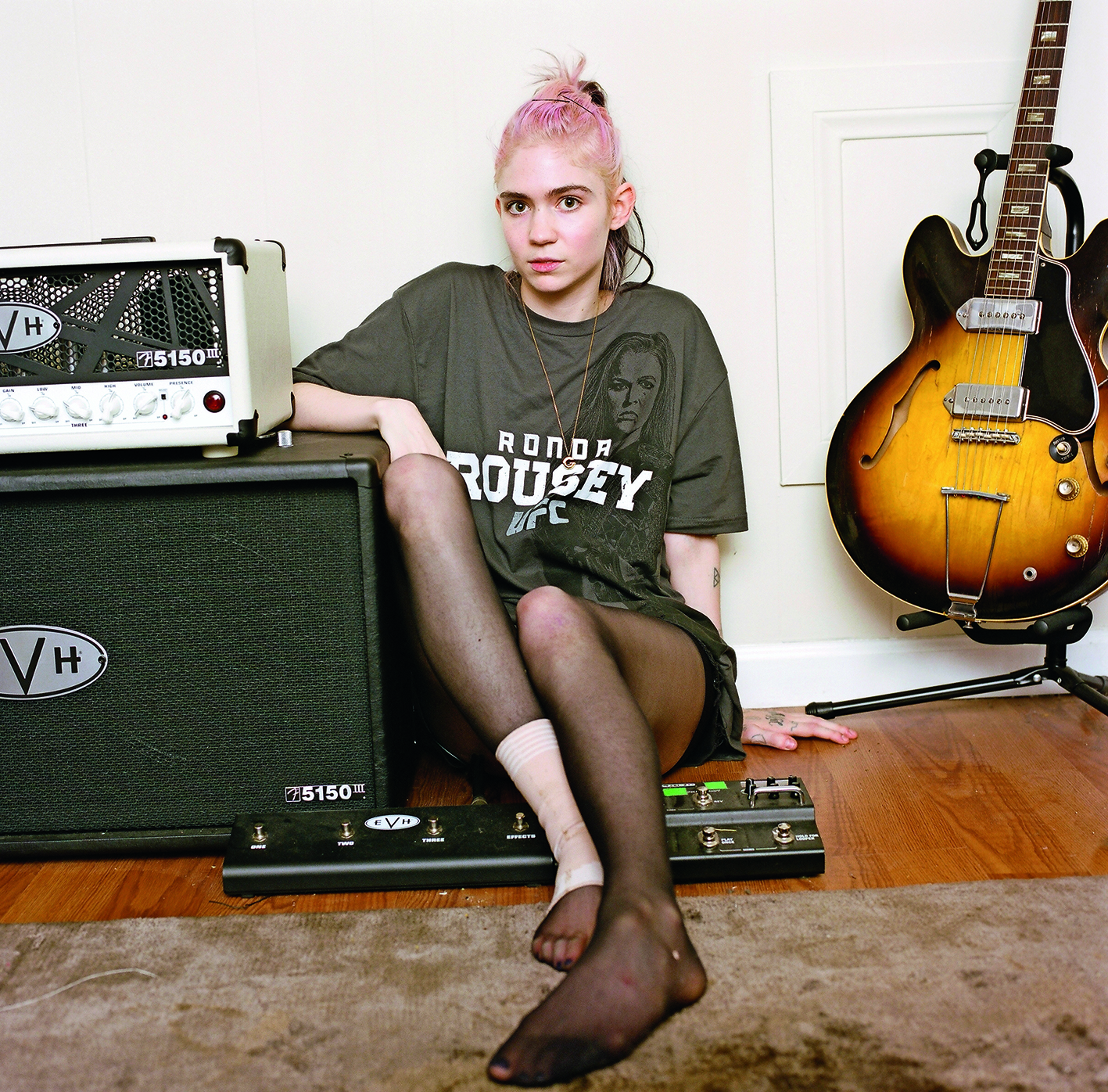
I understand you’re a big fan of Ableton…
“Right now I’m using Ableton because I love that you can change tempo, keep key and just pitch things around really easily. Ableton is really fast for that kind of thing, but it’s not great for vocals. Although I did most of my vocals in Ableton this time, I usually prefer Logic, but I didn’t wanna keep switching between the two.”
So you’re flexible in your use of DAWs?
“I think it’s important not to stick with the same programs because you start getting muscle memory. I work in Pro Tools because it’s really nice to be able to hand Pro Tools files to a mixer and have him mess with them. I produced the album at home on the Mac but this is the first album that I’ve had professionally mixed at another studio. When I got the parts back they almost sounded live; the mix added a lot of space. I probably use too many compressors on my stuff – I’m kind of like ‘gah’ trying to cram everything in.
“I also have a lot of files. When I’m done with a track there’s so many layers, so having it mixed just makes it feel richer and fuller, and the vocals aren’t fighting with the guitars. This is the first time I’ve been working with guitars and the fact they’re competing with the vocals has been the biggest difficulty for me.”
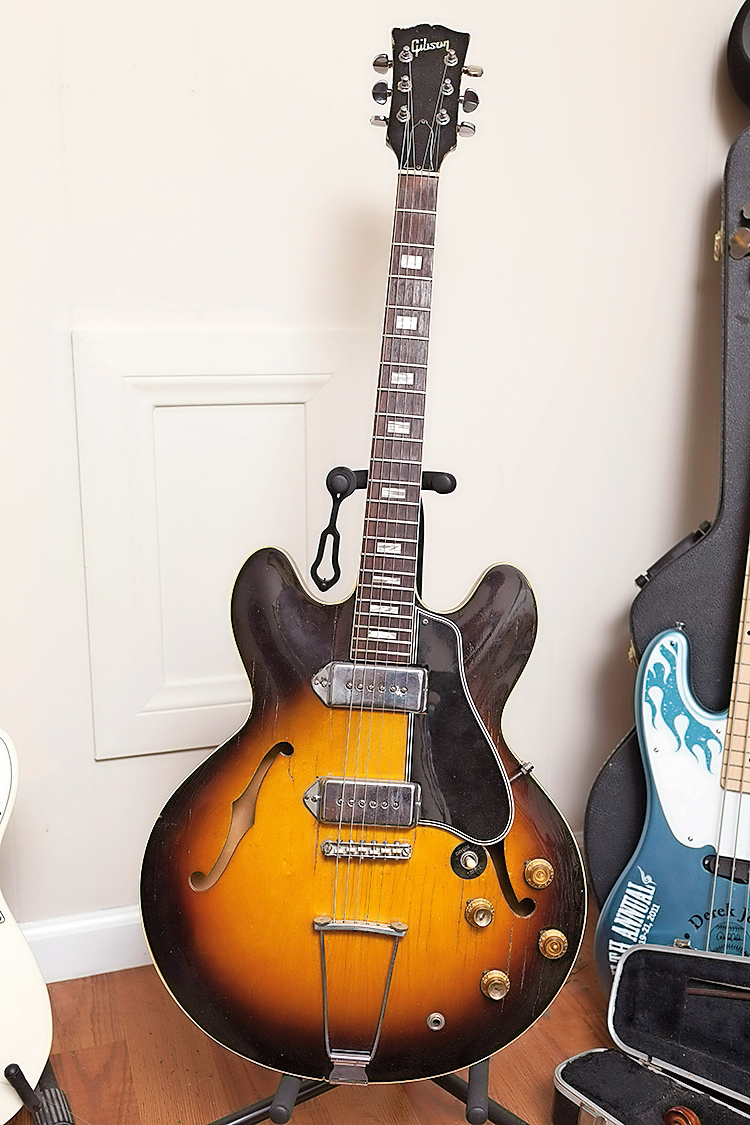
What virtual synths and plug-ins do you like working with in Ableton?
“I love the Nexus VST and Native Instruments’ Massive, and I really like using iZotope Ozone for sending people demos. I ‘mastered’ the album with Ozone, although obviously I got it professionally mastered in the end. I love the Waves plug-ins too, especially the Manny Marroquin reverbs, which I really like for doing vocals. I used iZotope Nectar on a couple of vocal tracks too, but it crashes a lot.”
Are the songs data heavy and does that lead to software conflicts?
“When I’m exporting stems I sometimes have to make two files to separate the instrumental from the drums, otherwise it crashes. Then I have to do the vocals in another file. There’s a lot of data but it really varies. There’s a song on the album that only comprises ten tracks and others that are 250, not including vocals, so it can be very intense! There’s one song that’s got Guitar Rig on it, and that software always crashes everything, then it takes me five tries to reset the computer and get the files back open. I mix as I go, so the track has to be finished before I start on vocals, otherwise it’s a disaster.”
Sounds like you need a faster computer with all that layering...
“I do a lot of layering. I’ll use synthetic claps then do a couple of layers of real claps on top so it has a really satisfying digital feel that also sounds a bit more real. I’ll use a digital kick for the low-end and a real kick for the high-end. Some presets are great, but I usually fuck around with them, and I’ve started building sample packs, which is really fun – just going around my house with a nice microphone banging things together and making sounds. Actually, this is the first time I’ve had a computer that’s good enough to be able to do all of that, but one of my goals with the next album is to be more decisive and not go so crazy.”
Are you always on the lookout for inspiring new sounds and effects plug-ins?
“Yeah definitely, it’s one of those things that I wish I could work on with people more because every time I do that I discover all these great synths. There’s definitely some really cool stuff out there that people are making.
“There’s this synth that’s like a plant you can grow, called Synplant – it’s really cool. I don’t really know how to describe it well, but it has all these weird parameters where you can take a sound and throw a plant arm around it. It’s really visual, so you’re not really working with numbers; you just have to look at it. It’s very intuitive and you can mess with the sounds without having to know that much about how it works. As I explained, sound design is my favourite part of the recording process.”
What do you use the Akai MPC for?
“I really like that machine. I only got it halfway through the record, but the song Scream was made with that. I really like how the drums quantise and I think the MPC is a more intuitive way to make drum patterns. I guess you can drag in melodic stuff, but it’s great for interesting drum patterns and bringing in nice sounds. It’s also really good for trying out different kicks, like putting in four different kicks and seeing which one sounds the best. I’ll definitely use it more on the next record.”
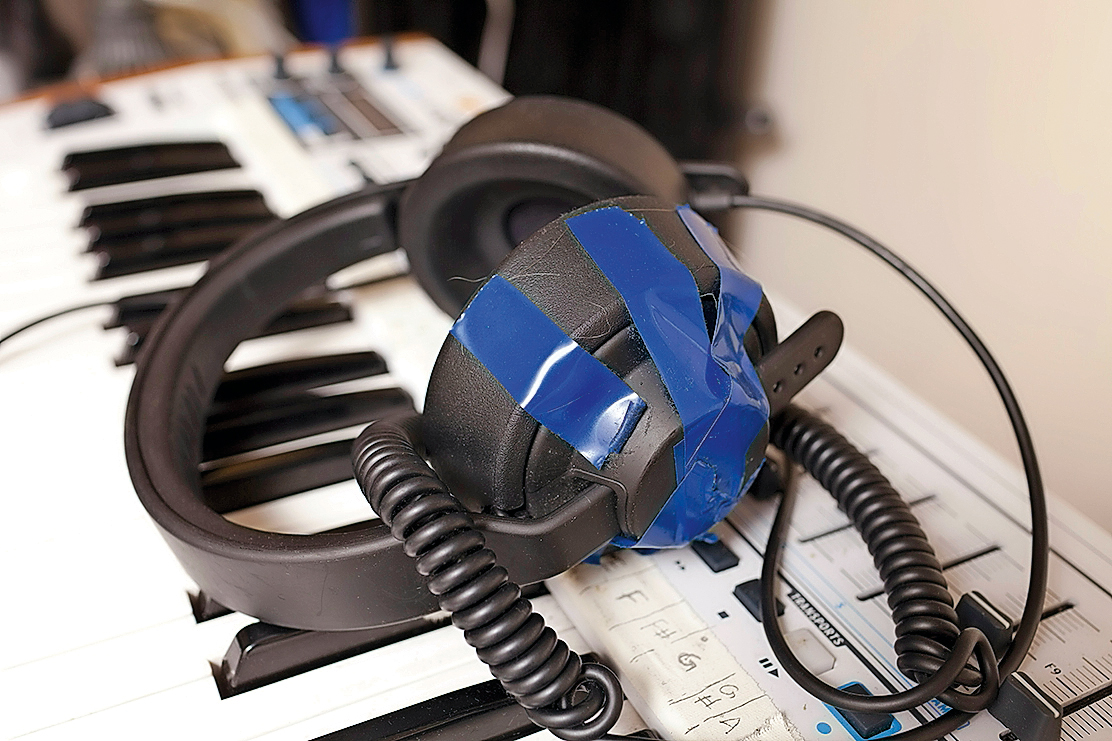
You have quite an acoustic set-up too, and quite a healthy collection of guitars…
“I’ve always been a fan of electronic music but I’ve written a lot of songs on guitar. It’s that intuitive vibe that you get, and you can use fewer drums when you’ve got guitar rhythms going on. I can’t enjoy a song unless I enjoy making it, and playing guitar is really fun. When I run guitars through my Apogee Duet I can get a really nice Eddie Van Halen Fender-style feel. I played bass on the first single too. It’s not really an impressive bassline, but I do like playing bass, it just makes the music sound more live and it’s more satisfying to me than programming.”
Do you spend a lot of time amping up guitars and toying with effects pedals?
“There’s a lot of songs on the record I wouldn’t have been able to make without the amp. I don’t always have to run things through the interface – or maybe I can, but I’ve never done it yet!”
What are you using for monitoring?
“Right now I’m using PMC monitors, although my biggest problem is that they don’t have a sub so my low-ends sound very flat. That’s another reason for getting my album mixed by someone else. I have some Rokit monitors too and I’m always testing my music on the laptop because I think a lot of people are listening to music on laptops these days.
“I know it’s terrible, but I listen to music on laptop speakers a lot too. I do always test on headphones though, and actually prefer listening to music on headphones as you can get really immersed. I love listening to music at night when I’m lying down with the lights off; it just feels private. But my favourite way of listening to music was when I was living in LA and taking the bus.”
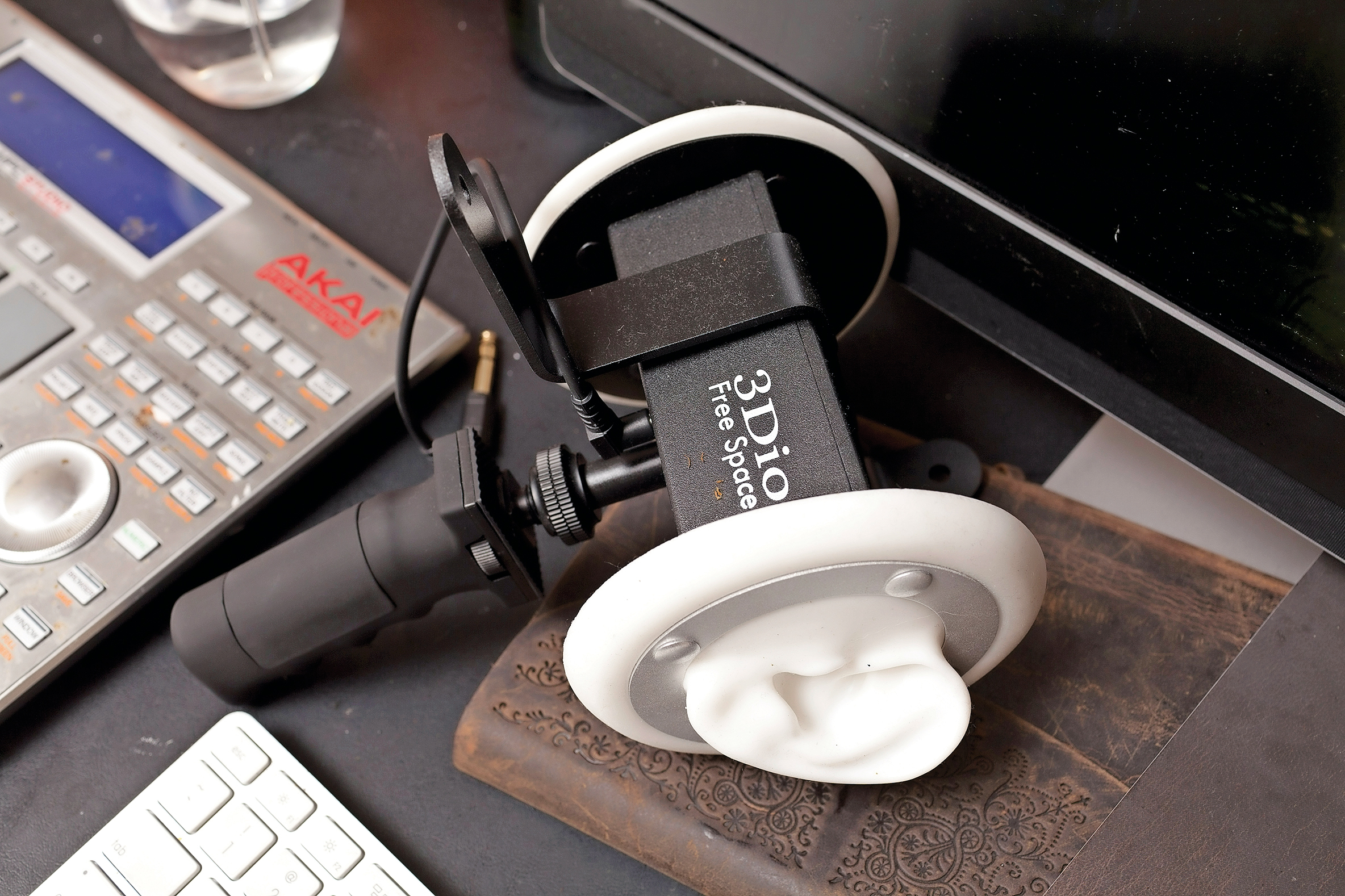
The weird-looking 3Dio Free Space Binaural Microphone stands out. How do you use it?
“I actually use that for spatial stuff that’s way behind you. It’s got two different microphones going in opposite directions so you can get a 3D sound effect. It sounds like how the human ear hears things, but you can’t really detect it unless you’re listening on headphones and it makes some really interesting panning stuff.
“I want to get a better version of the 3Dio mic for vocals, but so far it’s just kind of cool for giving things more of a 3D vibe. It’s hard to use for instruments, although you could probably do something really cool with it for guitars or vocals. Most of the production was already done when I got that mic, so I’ve been mostly using it to make things a bit more subtle and trippy.”
Do you see this album as being important for you at this point in your career?
“I guess it probably is pretty pivotal. When I’m working I can’t ever think, yeah this is going to be a hit – even the single – because every time I do that it doesn’t work. But this is definitely the first album I’ve released where anyone actually knows who
I am. Even when I made Visions my audience was pretty small, so yeah it’s probably pivotal.
“I think it’s my best album and I don’t know how people will react to it, but I think it really says who I am as an artist… or maybe not as an artist but as a producer. I think my other albums are great artistically, but technically they’re a bit ‘bleurgh’. I think this is the first album I’ve made as a musician as opposed to an artist trying to
make music.”
Would you say that ‘Grimes’ is a character that you’ve had to create, and then park when it comes to real life?
“Yeah, definitely. When I’m with my friends I always refer to Grimes in the third person. When I’m at home I don’t wear make-up and I’m super shy. Even when I’m playing a show I have to take an hour beforehand to get into a headspace. It’s not me and it’s not something I feel comfortable doing, and I guess I have to go outside of myself to do it.
“As I go on, Grimes becomes more and more abstracted from who I am, even though there are a couple of songs on this record that are the most personal songs I’ve ever written. Most of the other songs are going into that alter-ego and taking risks, which is easier when you have a character that you can do it through.”
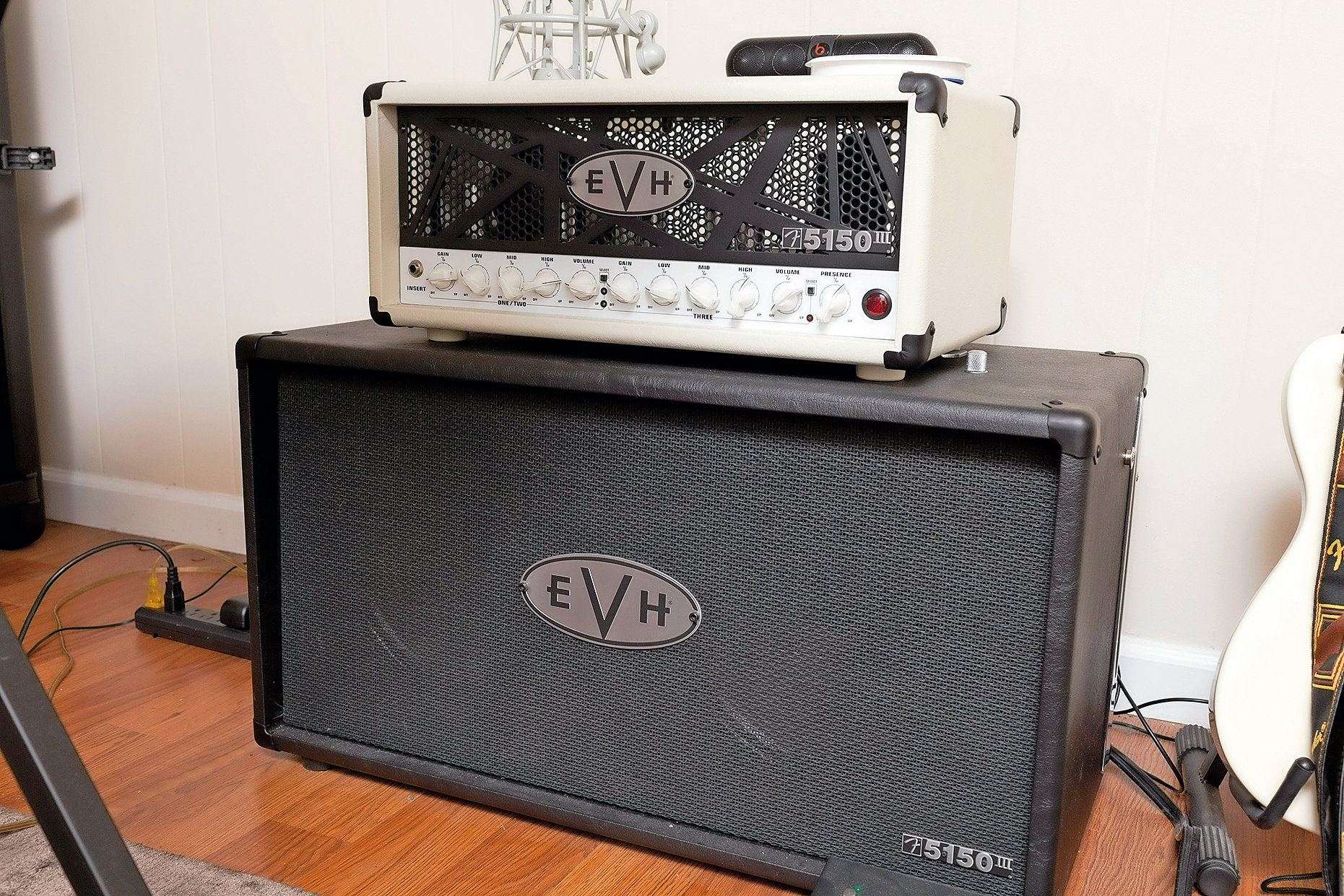
Can you fully focus on your career or does the media influence your emotions too much?
“It’s a bit of both. I try to avoid it and normally never read articles. I just get my friends to tell me if a piece is good or bad, but sometimes you can’t avoid Pitchfork or whatever saying ‘Grimes is stupid!’, and I’m like, fuck, their clickbait is really annoying. When a story is blatantly untrue and puts you in a bad light it kind of gets to me, otherwise I try not to think about it because you can’t really control it.”
What’s it like being a woman in the electronic music scene in 2015?
“As a fan, I really enjoy EDM and dance music, and I love going to EDM concerts. But I think behind the scenes there are a lot of problems with EDM. I’ve had a lot of difficulty engaging with other producers and I don’t think people in the genre are very hospitable to women.
“EDM is also fucking up live performance because you don’t need a band and you don’t need monitors or a lot of personnel, so a lot of EDM producers go out and do these shows with all these fireworks and LED screens, and when people like me try to do shows it’s like, ‘there’s no production – why are there no lights, no fireworks, no confetti?!’.
“When you have live vocals and instruments you need a mixer and need to be able to fly people all over the world just to make sure the sound is of a reasonable quality. I think EDM’s really changing the musical landscape in that regard because it’s making live performance a lot more expensive for people who aren’t DJs.”
• Get more recording stories and features at Recording Week 2024 here!


Future Music is the number one magazine for today's producers. Packed with technique and technology we'll help you make great new music. All-access artist interviews, in-depth gear reviews, essential production tutorials and much more. Every marvellous monthly edition features reliable reviews of the latest and greatest hardware and software technology and techniques, unparalleled advice, in-depth interviews, sensational free samples and so much more to improve the experience and outcome of your music-making.
“I’m looking forward to breaking it in on stage”: Mustard will be headlining at Coachella tonight with a very exclusive Native Instruments Maschine MK3, and there’s custom yellow Kontrol S49 MIDI keyboard, too
“The thing from the agency said, ‘We want a piece of music that is inspiring, universal, blah-blah, da-da-da...' and at the bottom it said 'and it must be 3 & 1/4 seconds long’“: Brian Eno’s Windows 95 start-up sound added to the US Library of Congress










